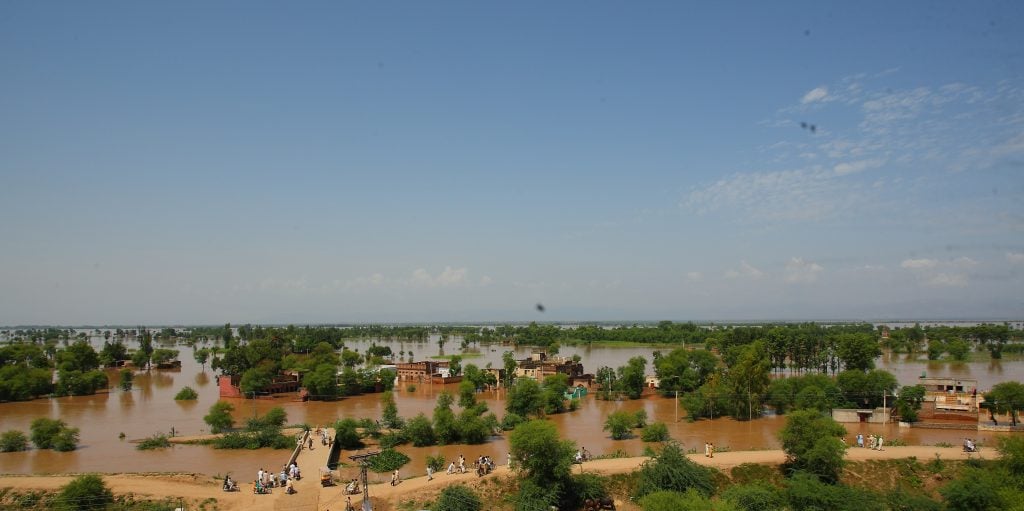Clearly, the ocean is an extremely important aspect of nature that’s essential to our health, wellbeing and global economy. Ocean health is therefore a highly interconnected issue, whereby any threats to it have wide-ranging consequences for people and the planet. And that’s precisely the problem: our ocean is in crisis thanks to human activity. We must stop harmful activities and urgently protect and restore our ocean to ensure a sustainable future for us all. UN Sustainable Development Goal 14 – Life Below Water – is the most directly linked to ocean health, but so are a range of others, from Zero Hunger to Good Health and Wellbeing, and Climate Action.
Humanity is the ocean’s deadliest predator
Overfishing, plastic pollution, air pollution, whaling, drilling and mining, oil spills, and sewage and agriculture waste run off…these are just a sample of the destructive human activities having a direct negative impact on our ocean by threatening wildlife populations and altering entire ecosystems. Official facts and stats vary, but here are a few to give a sense of the crisis we’re facing:
- In 2015, the World Wildlife Fund reported that there was a near 50% decline in marine life populations between 1970 and 2012.
- In 2018, Sir David Attenborough’s documentary Blue Planet II spread awareness that more than 8 million tonnes of plastic reaches the oceans annually.
- In 2019, Greenpeace reported that fishing gear (such as nets, pots and traps) make up the majority of large plastic pollution in the oceans.
- In 2021, Nature reported that the global population of sharks and rays has fallen more than 70% since 1970 – and cited overfishing as the main driver of the decline.
- The Reefs at Risk Revisited report states that 75% of coral reefs are under threat from direct human activity and climate change combined – a figure that could rise to 90% by 2050.
Addressing ocean health and climate change – it’s not ‘either/or’
As the coral reef stat above suggests, we must discuss ocean health within the context of climate change. Rising greenhouse gases are causing sea levels and sea surface temperatures to rise, as well as increased acidification and deoxygenation. Changes to our ocean’s circulation and chemistry means it cannot regulate our climate as effectively, and therefore storms are becoming more intense, while it’s also less able to absorb carbon emissions, further exacerbating climate change. Clearly, it’s not a case of choosing whether to prioritise climate change or ocean health – the two challenges are inextricably linked and we need to address them together – urgently.
A focus on overfishing
Fishing isn’t inherently bad for the ocean. But overfishing (catching fish faster than stocks can replenish) is one of the biggest drivers of declining ocean wildlife populations and the degradation of marine ecosystems. The UN Food and Agriculture Organization estimates that just over one-third of fish stocks are either fished to capacity or overfished. Meanwhile, bottom trawling (dragging heavy nets across the ocean floor to catch large quantities of fish) is extremely damaging to natural habitats, and bycatch (whereby unwanted sea life is captured while fishing for a different species) causes the needless loss of billions of species – many of which are endangered and protected.
Overfishing is also a social issue: it threatens food and economic security. Seafood is a vital source of protein for billions of people, and demand is growing. Meanwhile, fishing is the principal livelihood for millions of people. Growing demand combined with overfishing means more diets, businesses and jobs are dependent on ever-dwindling stocks. The work of local fishing communities is therefore becoming harder, taking more time and resulting in less reward. And all the while they must compete against huge, foreign, subsidised vessels being used to meet the growing global demand. It’s estimated that billions of dollars in government funding annually supports illegal fishing activities that steal resources and security from coastal communities. Illicit operations within fishing supply chains can also be connected to human trafficking and slavery at sea, which can disproportionately affect the most vulnerable coastal communities.
The search for sustainable solutions
The ocean crisis may seem overwhelming – and the intention of this article is not to scaremonger but to present the problem before explaining that there are solutions already out there – it’s a case of mobilising behind them.
One such way to restore our oceans is by better protecting them to encourage wildlife to thrive. Currently only 2-6% of the ocean is classified as a Marine Protected Area. The UK government has launched the Global Ocean Alliance along with 42 other member nations, calling for at least 30% of the ocean to be in Marine Protected Areas by 2030. But it’s not just governments that have an important role to play in the protection and restoration of the ocean – so too do investors.
Our industry can drive positive change by investing in companies creating sustainable solutions for ocean health, such as those that promote the circular economy and a move away from single-use plastic use, waste management or sustainable fishing practices. Investors must also engage with companies to adapt their business models to better support the ocean – whether directly or through the adoption of more environmentally or climate-friendly practices.
At Columbia Threadneedle, our engagement focuses on land-based pollution, including that of plastic waste, pesticide and nutritional run off from agriculture, oil spills and chemical leaks. On plastics, we ask companies to reduce the amount of unnecessary single-use plastic, improve the recyclability of plastic, invest in packaging redesign and new materials, implement circular economy models and improve recycling infrastructure.
Final thoughts
The ocean has taken care of us for centuries, and therefore a healthy marine environment is vital for the health of our planet and everyone living on it. Despite communities and individuals having long campaigned to protect our ocean, these conversations are entering the mainstream too slowly.
In 2018 Sir David Attenborough shed light on the ocean crisis during Blue Planet II, and more recently Netflix documentary Seaspiracy aggressively condemned fishing practices (although not without criticism). Governments, corporates and investors now must urgently address the ocean crisis and use their positions of influence to effect real, positive change. We cannot achieve the United Nations 2030 Sustainable Development Agenda without finding a fair, just way to protect and restore our ocean.
To protect and preserve the ocean and all it sustains, we must create a new balance, rooted in true understanding of the ocean and how humanity relates to it. We must build a connection to the ocean that is inclusive, innovative, and informed by lessons from the past.
Interested in learning more? Use the sources below for further reading
National Geographic – facts about our ocean and the threats of overfishing and climate change
World Wildlife Fund – further information on the threat of overfishing
World Wildlife Fund – further information on fisheries subsidies
New York Times – more detailed information about sea slavery







